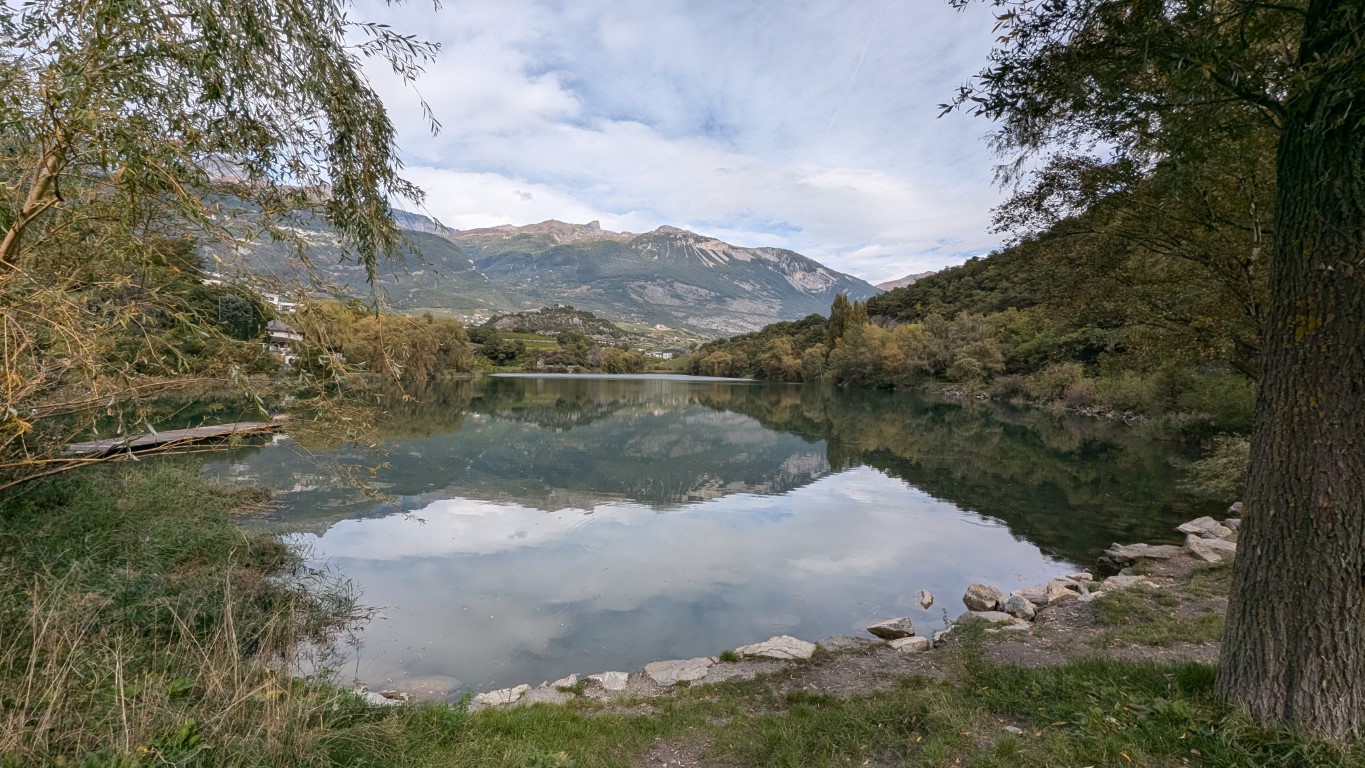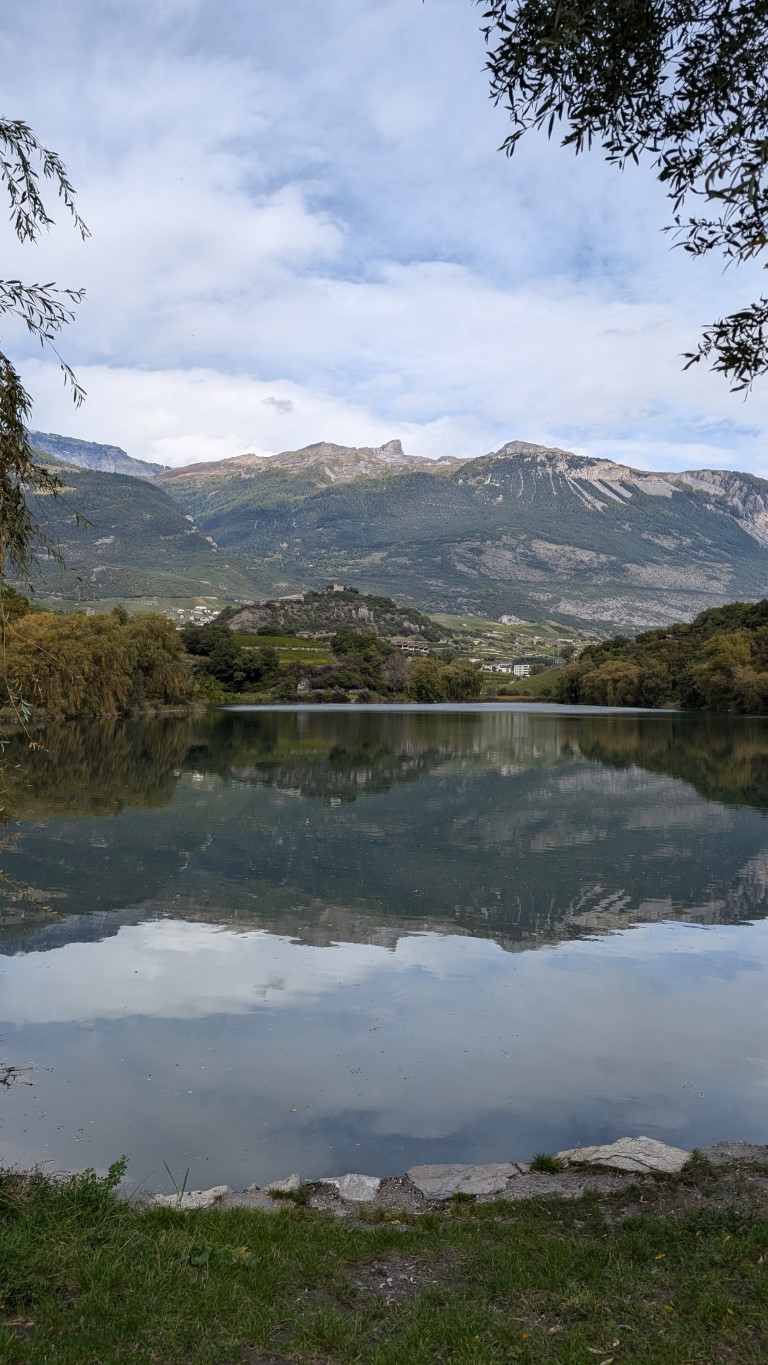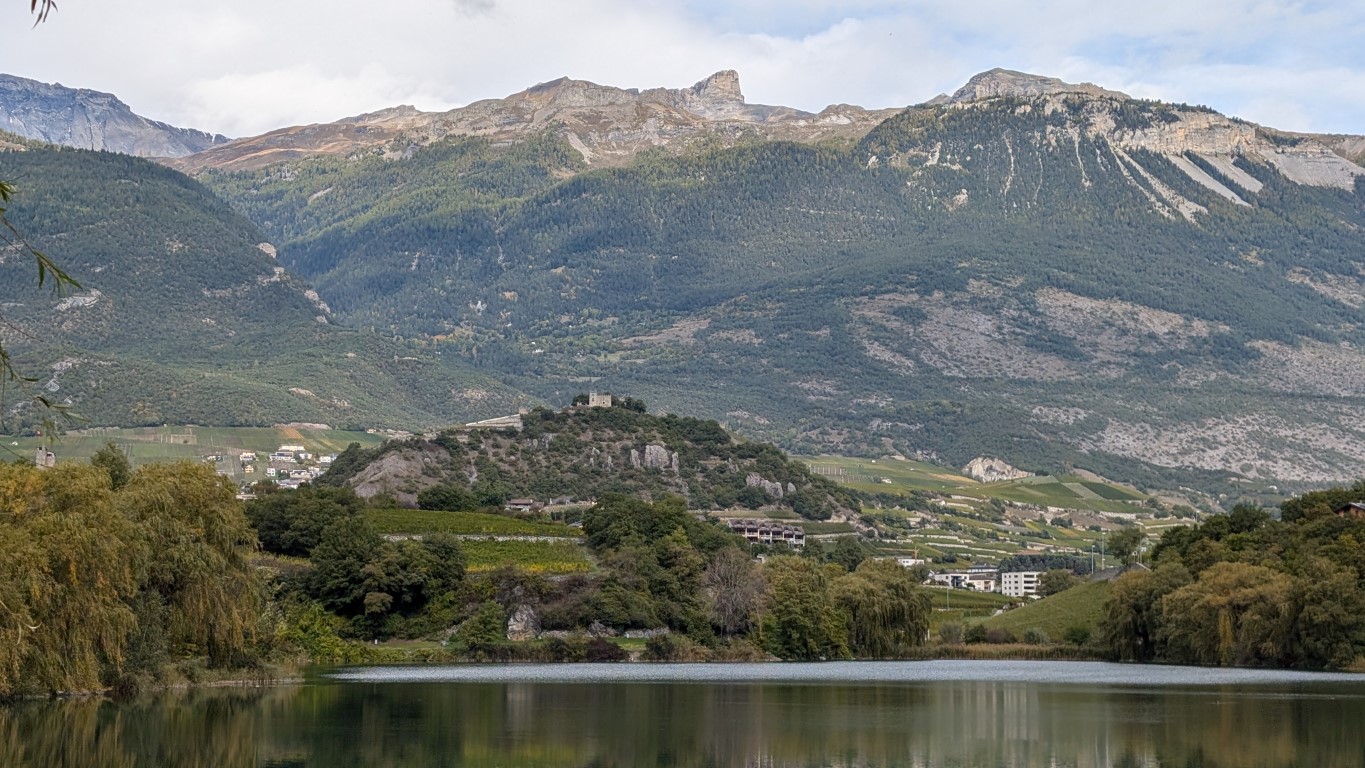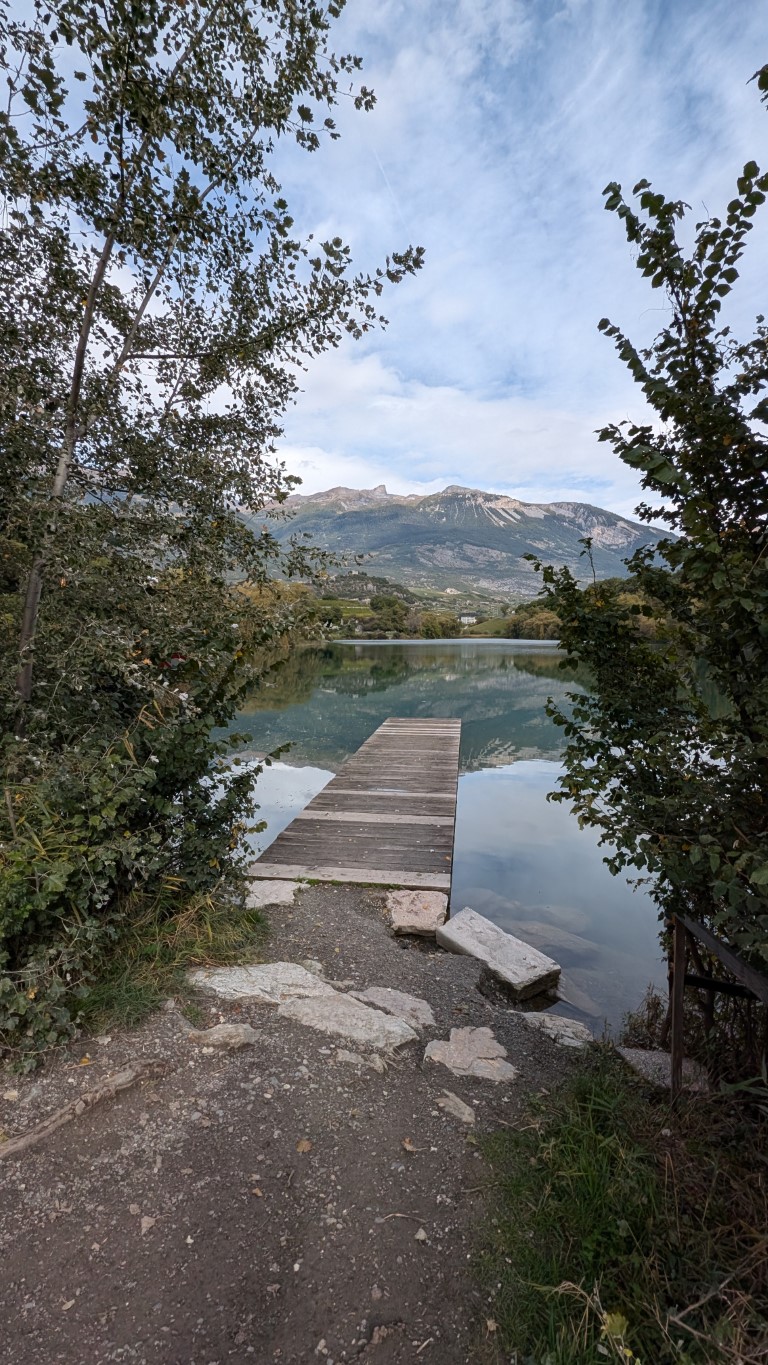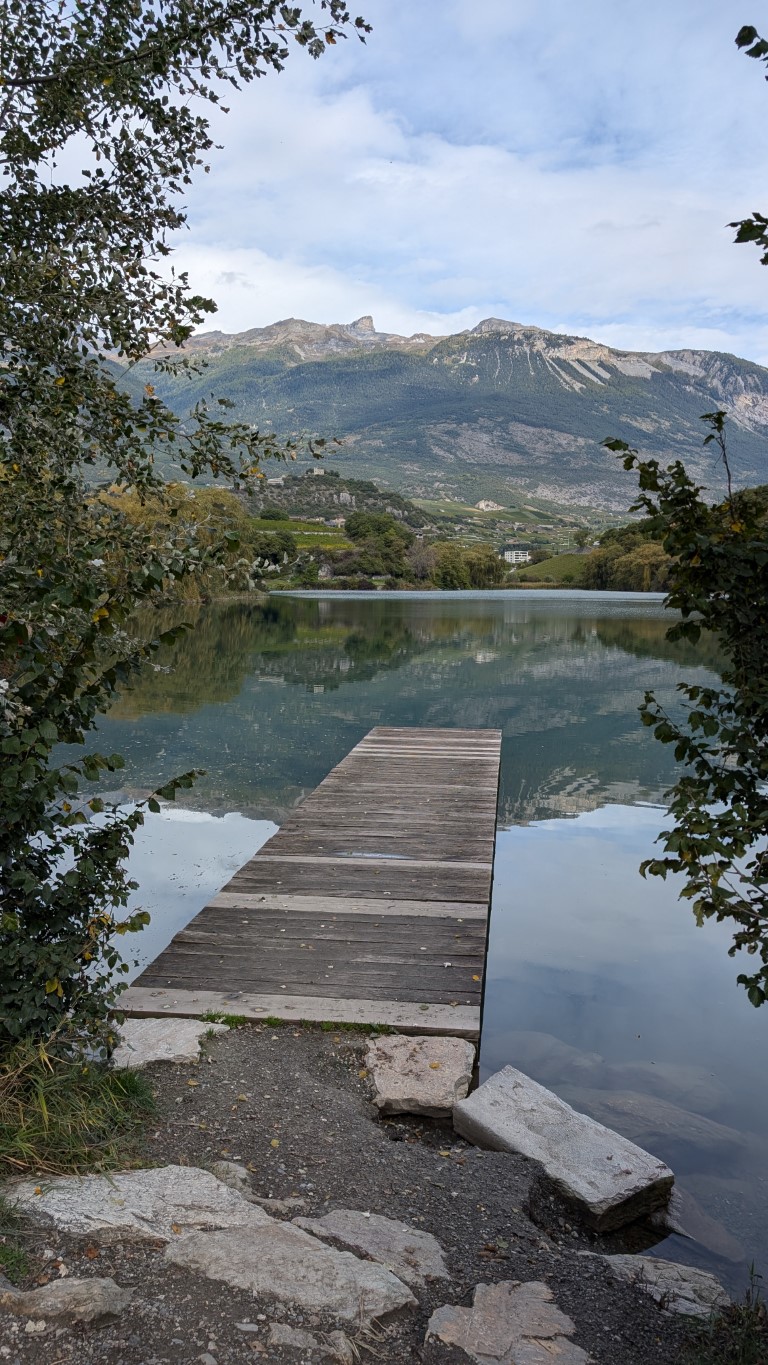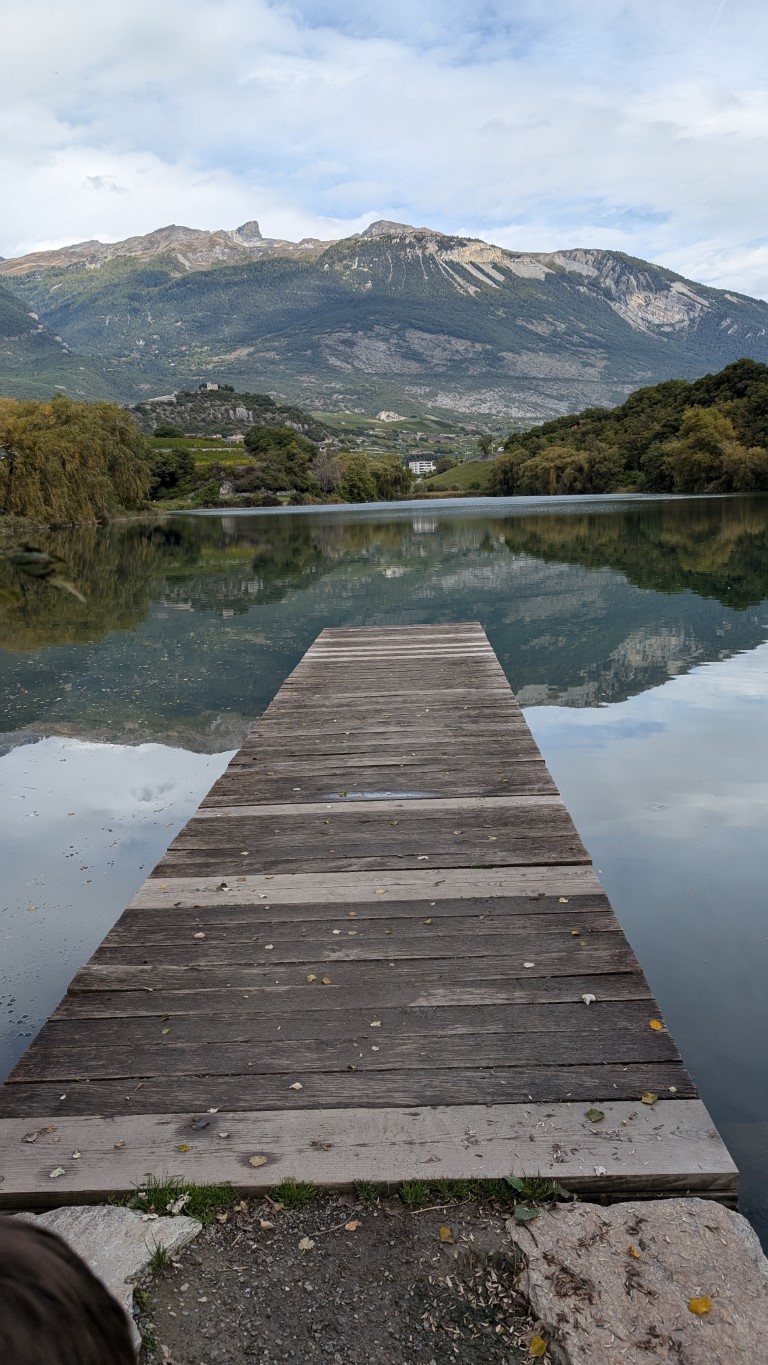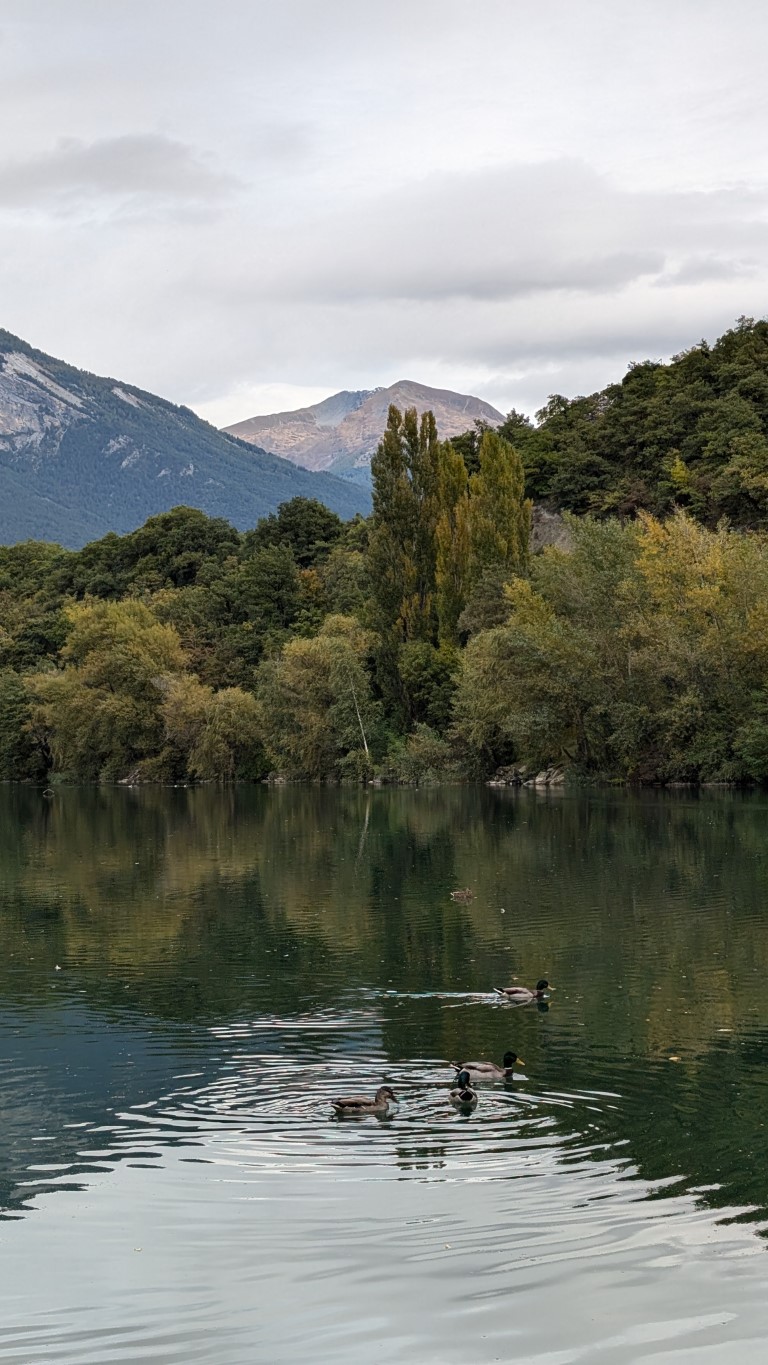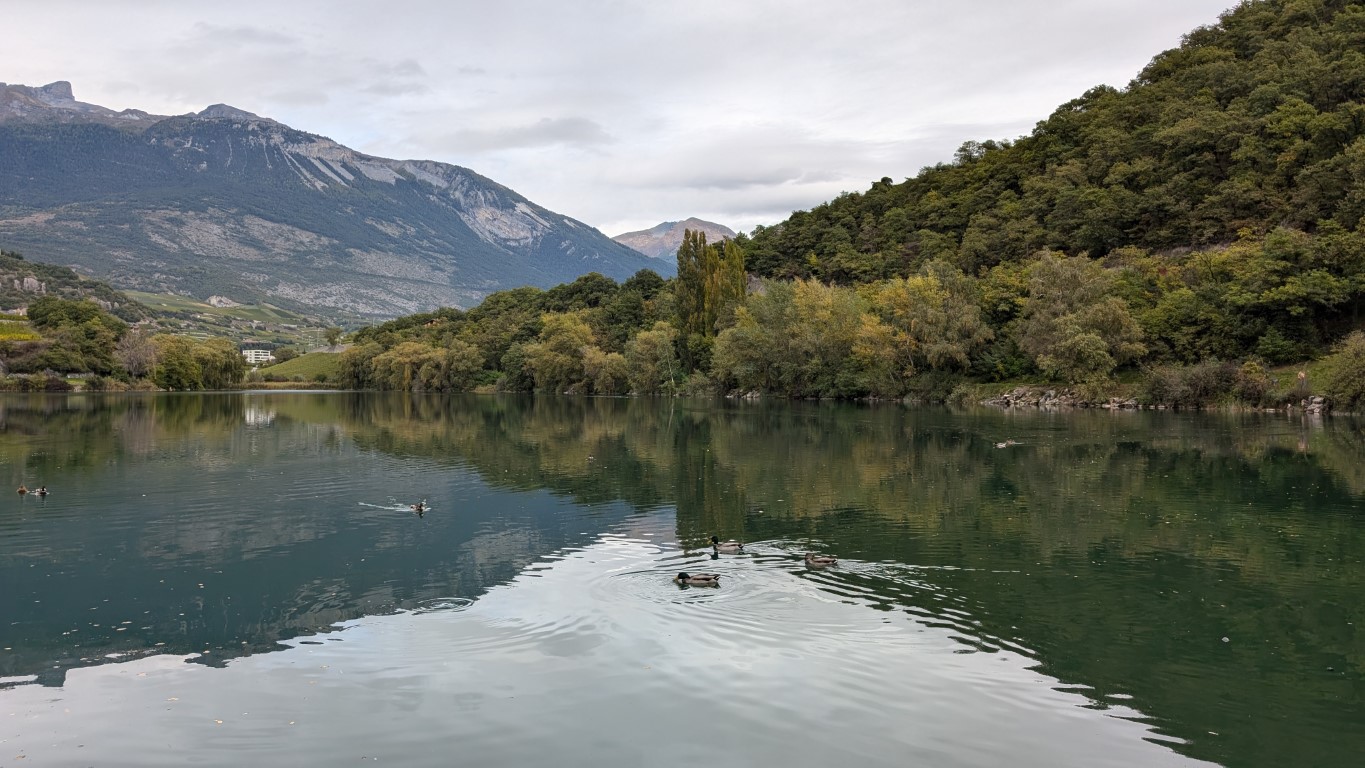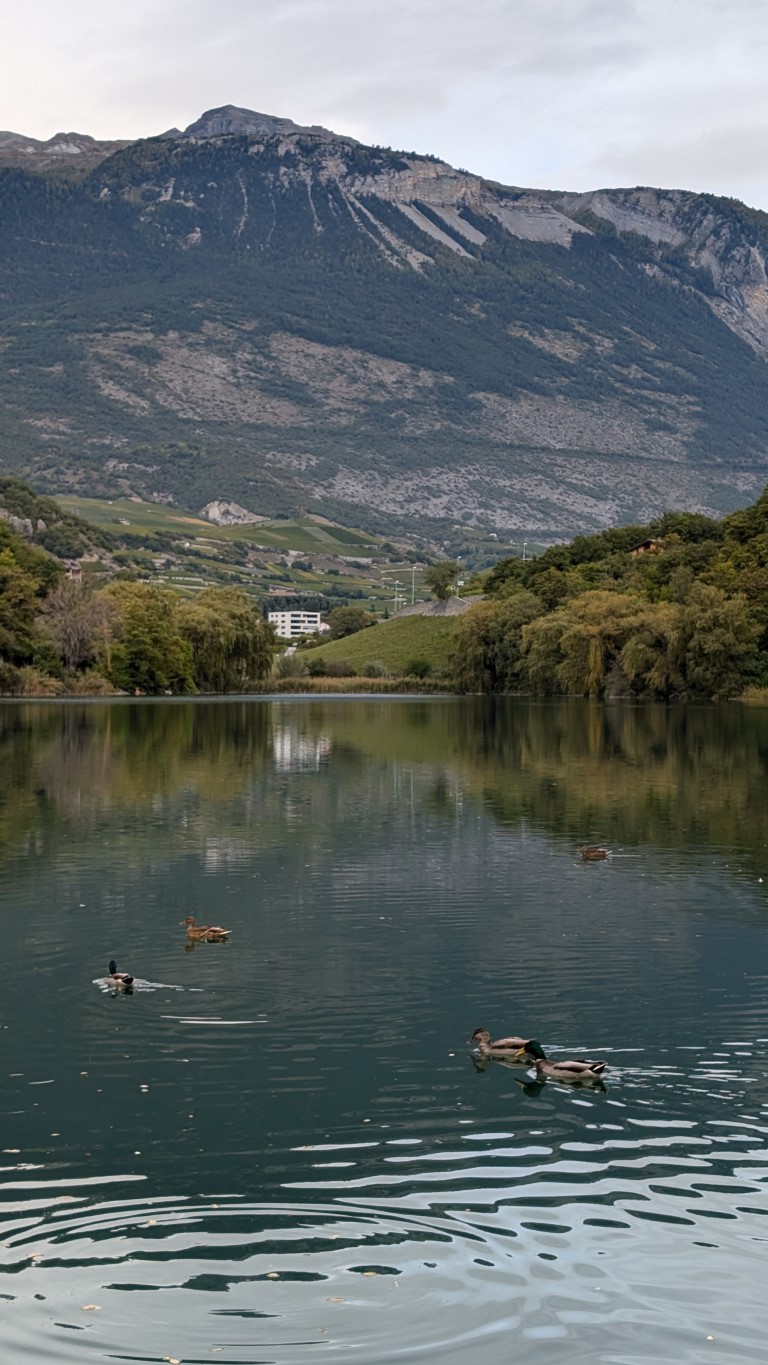A quiet pearl nestled in the heart of Sierre, Lake Géronde stretches out like a sparkling mirror amidst rolling hills and proud vineyards. At an altitude of 523 metres, it rests there as if it wanted to embrace the sky and capture the deep blue expanse in its silent waves. With a modest surface area of 0.055 square kilometres, it may seem small, but its beauty radiates far beyond its shores.
A delicate wood chip path hugs the lake, inviting you to feel the rhythm of nature as you circle the water at a leisurely pace - a walk of little more than half an hour that refreshes the soul. The breeze carries the scent of pine and the light whiff of grapes ripening on the vines nearby.
On the north-western shore, where the Bains de Géronde outdoor pool is located, the cool water meets the sunlight in playful reflections that invite you to linger and immerse yourself. And if the lake alone is not enough, there are two small, mysterious pools not far away that lie like hidden gems in the landscape - the "petit lacs", which, barely touched by the noise of the world, seem to be in silent dialogue with the main lake.
The Murderer of Pfynwald
A citizen of Niedergampel, whose wife was seriously ill and close to death, mounted his horse and rode quickly to Siders. There lived a miracle doctor whose cure was the only hope. But time passed more quickly than he had hoped, and so he urged his horse on to get through the Pfynwald before nightfall, that gloomy and sprawling forest where the call of a fearsome robber hung like a menacing whisper in the branches.
As his horse trotted down the road, he was reminded of the monster that had once led an innocent child astray and snuffed out its young life with cruel cunning. "What is more beautiful than the day?" the murderer had asked. "The mother's gaze," answered the child. "What is more precious than gold?" - "The mother's heart." "What is sweeter than honey?" - "The mother's milk." "What is softer than down?" - "The mother's womb." "What is stronger than death?" - "The mother's love." But when the last question came, "What is harder than stone?" and the child answered with a trembling voice, "The murderer's heart!", the monster hurled the little boy so violently against the rock that it shattered. To this day it is called the Murderer's Stone.
The farmer from Gampel had already left the ominous stone behind him and was hoping to reach the edge of the forest soon, when suddenly a dark figure jumped onto the road. With a cheeky greeting, the man stopped the rider. A cold shiver ran down the farmer's spine when he recognized his old comrade Peter in the wild fellow, who was now roaming the Pfyn forest as a feared murderer. "My wife is seriously ill," stammered the farmer, "and I'm bringing her medicine from the doctor in Siders." But the robber laughed mockingly and said: "Don't you recognize me anymore, old friend? What do they say about me in the villages?" The farmer, frightened but honest, answered: "People say your days are numbered. They're after you, you're an outlaw, and if you don't flee soon, you'll be hanged." The murderer's rough face twisted into a grim smile. "You have told the truth, and in return I will give you your life. Come with me, I will show you how a murderer lives!"
The farmer reluctantly followed his former friend deeper into the forest. Peter stopped at a thick thorn bush and let the man dismount. They crawled through the thorny thicket until a secret passage opened up that led into a spacious cave. Peter lit a pine torch, the light of which illuminated the dark corners of the cave. The walls were lined with stolen goods: bales of the finest linen, silk scarves in dazzling colors, barrels and sacks, all stacked like the loot of an unscrupulous thief. In one corner lay a straw sack, covered with gold-embroidered blankets - a strange mixture of splendor and misery.
Peter offered the man to spend the night in his cave, but the farmer refused and urged him to return to his sick wife. "Then take what you can carry!" demanded the robber, but the farmer, sensing the danger, replied: "Another time. Now my family is more important than all your stolen goods." In a serious voice he warned the robber: "Run, Peter, before it is too late. Only gallows wood grows here for you!" The robber nodded seriously and let his old comrade go, but with one last warning: "Ride slowly while you can still see me. If you hurry, I will be overcome by murderous intent, and I cannot spare even a friend."
The farmer did as he was told, and only when the grim figure of the murderer disappeared behind him in the shadows of the forest did he spur his horse and galloped home in wild haste. When he finally reached home, bathed in sweat and full of relief, the children rushed towards him in joy. His wife, pale and weak, asked why he was so late. The farmer unpacked the medicine and told her about the strange adventure in the Pfynwald. She was frightened by how close death was, but at the same time she was full of joy that her husband had returned unharmed. After just a few weeks she recovered from her illness.
Some time later, rumors spread that the murderer had disappeared from the Pfynwald. Rumors said that he was wandering around the wild valleys of the lower Valais. Later, it was said that he had been caught and executed for his crimes. Then the farmer remembered the treasures that were hidden in the robber's cave and set out to recover them. But no matter how hard he searched, the entrance to the cave remained hidden. The forest had hidden its secret deep in the thorns, and to this day no one has found the murderer's hidden riches.
Access
The lake is freely accessible.


